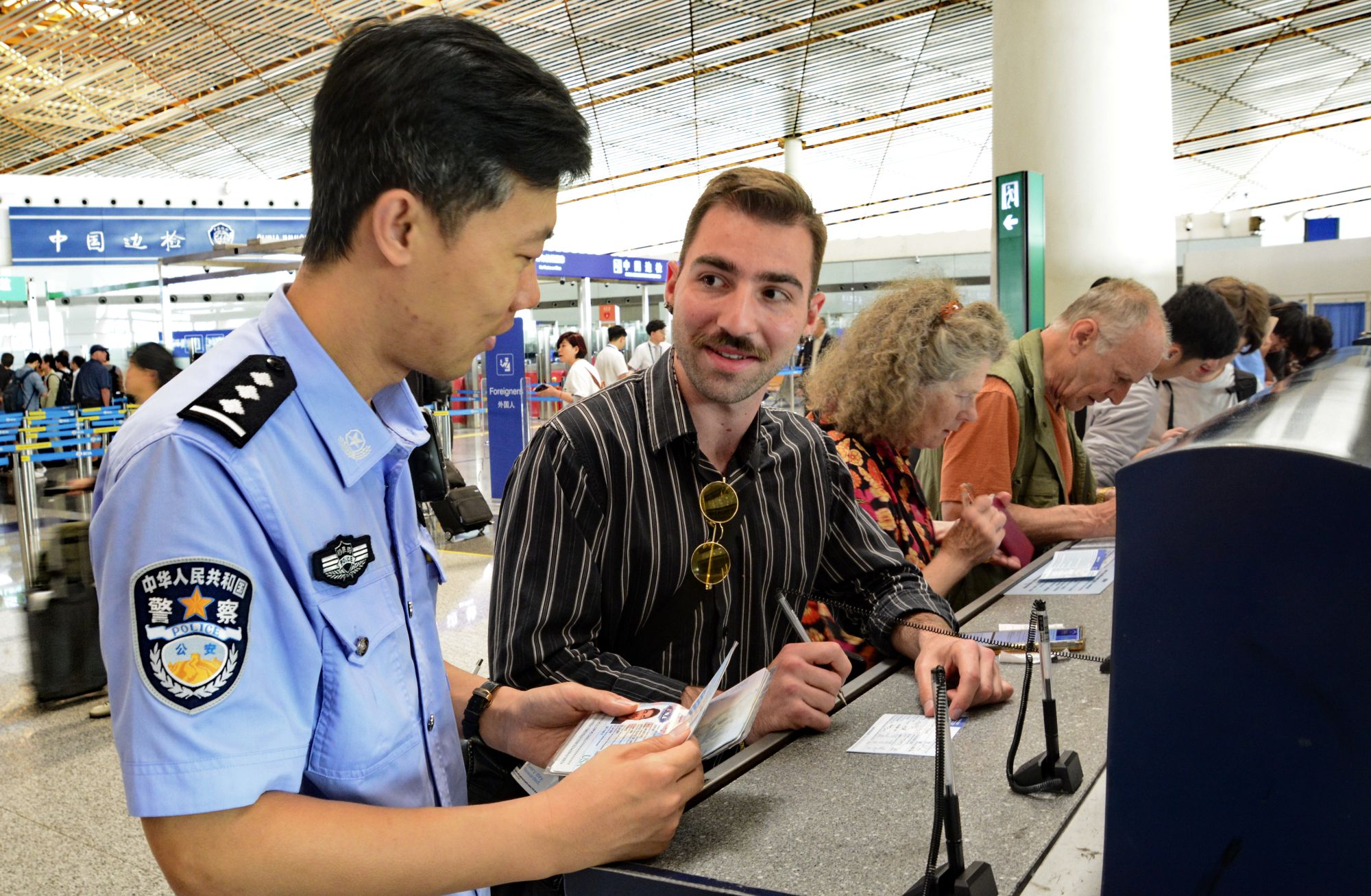Indonesia and China strengthen ties with new visa-free transit policy
Indonesian travellers with ordinary passports can now enter China for 10 days if they have tickets to a third country

Bilateral ties between Jakarta and Beijing are expected to improve following China’s decision to include Indonesia in a list of countries eligible for a 240-hour visa-free transit policy, although any impact on tourism is expected to be minimal.
Under the scheme, which began on Thursday, Indonesian travellers with ordinary passports can enter China and stay for 10 days provided they have air tickets to a third country after leaving China. Without further travel plans, their entry will be considered illegal.
Indonesia became the 55th country included in the policy, alongside several Asian nations, including South Korea, Japan, Singapore, the United Arab Emirates and Qatar.
The visa-free transit allows Indonesian citizens to enter and exit China through any of 60 designated ports across 24 regions, including Beijing, Shanghai, and Hainan.
Important for businesses
The latest move by Beijing has been met with enthusiasm from travellers in Indonesia, who have for long lamented the country’s perceived weak passport despite being the world’s 16th largest economy last year, according to World Bank data.
Indonesia’s passport is ranked 66th out of 199 countries and territories in this year’s Henley Passport Index, offering visa-free access to only 76 destinations. In comparison, East Timor, the second-poorest country in Southeast Asia, ranks 54th, with its citizens able to visit 96 destinations without a visa.
“Good news fellow Indonesians. Just last February, China’s immigration in Xiamen gave me a headache, asking so many questions when I arrived at midnight for a one-day transit on my way home from Japan. No more of that now,” one social media user said following the announcement.
This policy needs to be appreciated, because Indonesia was never included in the list of [China’s] free transit visa policyYeremia Lalisang, international relations expert
Another user said: “Travelling to China is more exciting than [to] Japan. Prices are still relatively affordable, the people are super unique but fun, the food and snacks are all packed with flavour, the nature and cities are jaw-dropping. Congrats, now Indonesian citizens can ‘stop by’ China visa-free for a 10-day transit.”
Yeremia Lalisang, an international relations expert at the University of Indonesia, said it was crucial for Indonesian travellers to understand that “they must be on their way to a third country” to take advantage of the transit policy.
“However, this policy needs to be appreciated, because Indonesia was never included in the list of [China’s] free transit visa policy. This is progress,” Yeremia told This Week in Asia.
The policy will be better enjoyed by “Indonesian businessmen who [often] interact with China,” he said.
According to Yeremia, Indonesian tour agencies could still capture the opportunity by offering packaged tours that include China and Japan, which recently eliminated visas for Indonesian travellers for visits up to 15 days.
Veronika Saraswati, a researcher at the Indonesia-China Partnership Studies Institute at the Atma Jaya Yogyakarta University, said the visa-free transit policy was “an important step that reflects China’s commitment to strengthening bilateral relations.”
“China is an important trading partner for Indonesia, but arranging a visa [to go to China] takes time. Indonesian businesspeople often want to visit China, but they have to arrange a visa, which can take a long time,” Veronika said.

The Chinese government has tried its best to provide as many staff members as possible at their visa processing counters in Jakarta, Surabaya, Medan and Denpasar, but trying to visit China is still a hindrance for Indonesian businesspeople, she said.
Following the policy, Yeremia urged President Prabowo Subianto’s administration to tap into the momentum to persuade Beijing to waive all its visa requirements for Indonesian travellers.
“I’m really waiting if China wants to pursue this kind of direction. I think this is the most logical way if China wants to pursue closer bilateral relations with Indonesia, with the emphasis on people-to-people exchanges,” he said.
“This is what I expect from China. I have a lot of networks in China; of course, if I was given visa-free [access to China], it would be very nice.”
However, Yeremia said that the “development gap” between the two countries – with China being more advanced – suggests Beijing is likely to hesitate to lift all visa requirements for Indonesians.
“It is very unrealistic to expect an instant, visa-free policy from China,” he said. “The visa waiver could first be given to individuals who already have cooperation with institutions in China, such as researchers in Indonesia, so that they can visit labs in China. That could be the beginning of a visa-free policy to China for Indonesian citizens.”
Jakarta should also adopt the same approach to Chinese citizens, who can currently enter the Southeast Asian nation by paying 500,000 rupiah (US$30) for a visa-on-arrival, valid for visits of up to 30 days, Yeremia said.